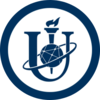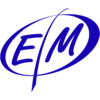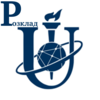Materials & News
2021 year
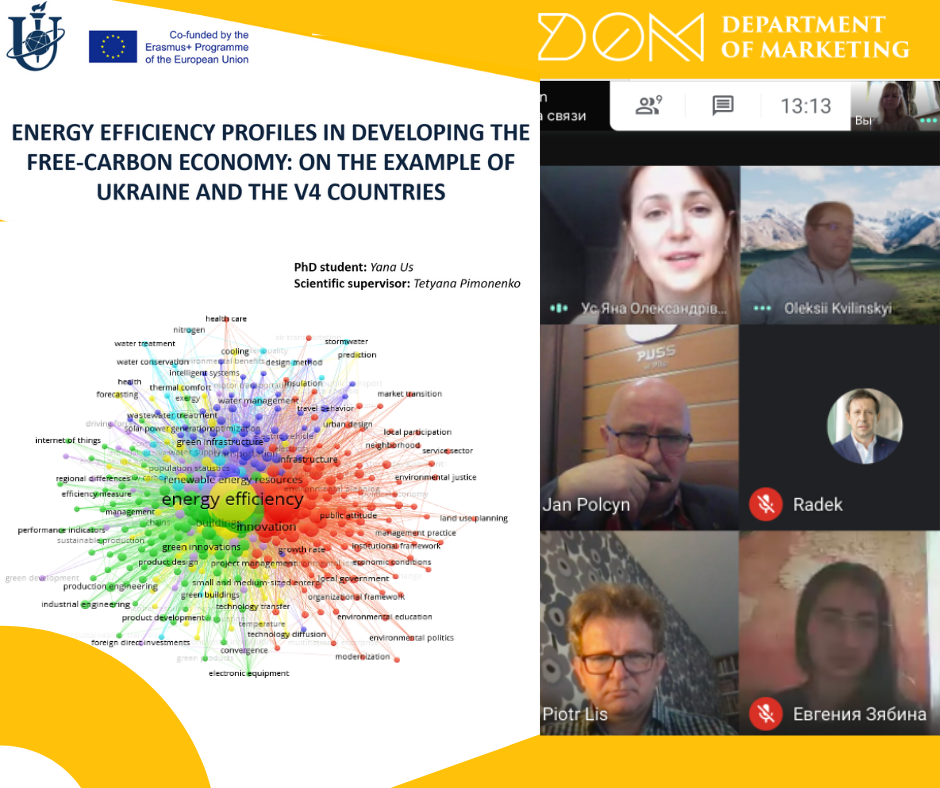
DUAL MODEL OF ACADEMIC ADVISING

Open lectures within the European project "EU Carbon-free economy: best practices for Ukraine"

Training: Ukraine and the EU: Cooperation within a Carbon-free economy
Performers Jean Monnet Module "Carbon-free economy: best practices for Ukraine" (620232-EPP-1-2020-1-UA-EPPJMO-MODULE) Tetyana Pimonenko and Yana Us conducted an online training for 15 Masters and 15 PhD students from different specialities on possible ways cooperation between the EU and Ukraine in the transition to a carbon-free economy (3-29 April 2021). Participants were divided into project groups that used brainstorming to build mental maps of EU-Ukraine cooperation to transition to a carbon-free economy. As a result, the optimal cooperation's map between the EU and Ukraine to transition to a carbon-free economy was developed.
The training was conducted as part of the course "The EU Cohesion policy for Carbon-free economy", implemented under Jean Monnet Module "Carbon-free economy: best practices for Ukraine" (620232-EPP-1-2020-1-UA-EPPJMO-MODULE). All participants received certificates according to the results.
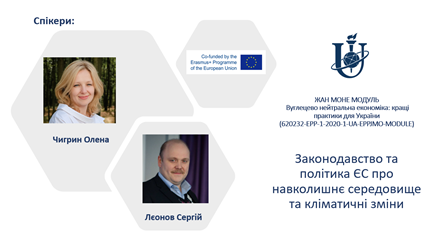
EU ENVIRONMENT AND CLIMATE CHANGE LEGISLATION AND POLICIES
The Department of Marketing is implementing the Jean Monnet project "Carbon-Free Economy: Best Practices for Ukraine" (620232-EPP-1-2020-1-UA-EPPJMO-MODULE). 11 May 2021, Leonov Serhiy and Chygryn Olena conducted an online seminar on "EU Legislation and Policy on Environmental Protection and Climate Change" for 45 students from different specialities. The seminar participants got acquainted with the main components of European legislation, goals and strategies of the European Union in the field of environmental protection and climate change. Particular emphasis was placed on the regulation of production activities, the formation of social responsibility of enterprises, the necessity to disclose information about the results of their environmental activities. Students also discussed how transparency affects companies' performance.

Online Scientific Festival "The EU Cohesion Policy for Carbon-Free Economy" Showcases Commitment to Sustainability
In a groundbreaking initiative aimed at promoting awareness and understanding of the European Union's commitment to a carbon-free economy, the Online Scientific Festival titled "The EU Cohesion Policy for Carbon-Free Economy" successfully concluded its week-long sessions from June 10 to June 16, 2021. The virtual festival attracted 134 MA and Ph.D. students from esteemed institutions, including Ukraine Western Ukrainian National University (Ternopil), National TU "Dniprov Polytechnic" (Dnipro), and Sumy State University (Sumy).
The festival served as a platform for these students to delve into the fundamental aspects of the EU Carbon-Free Economy, focusing on the main goals and principles driving the movement towards a sustainable and environmentally friendly future.
Key Highlights:
1. Participants:
A total of 134 motivated students participated in the festival, bringing together the intellectual prowess of future leaders from diverse academic backgrounds. Their engagement showcased a shared commitment to understanding and contributing to the global efforts for a carbon-free economy.
2. Participating Institutions:
The festival drew attendees from prominent academic institutions, including Western Ukrainian National University in Ternopil, Shupyk National Healthcare University of Ukraine in Kyiv, and Sumy State University, highlighting the cross-disciplinary nature of the carbon-free movement.
3. Featured Speakers:
Esteemed speakers at the event included Chygryn Olena, Serhiy Lyeonov, Tetyana Pimonenko, and Yana Us. Each speaker brought a wealth of knowledge and expertise to the virtual podium, offering valuable insights into the intricacies of EU Cohesion Policy and its application in the context of a carbon-free economy.
4. Main Goals and Principles:
The festival meticulously outlined the main goals and principles steering the EU's carbon-free movements. Discussions centered around strategies to reduce carbon emissions, enhance energy efficiency, and foster innovation in sustainable technologies. The principles of inclusivity, collaboration, and long-term environmental stewardship were emphasized as crucial elements in achieving a carbon-free future.
5. Engaging Sessions:
Throughout the week, participants engaged in a series of interactive sessions, workshops, and panel discussions. These sessions covered a broad spectrum of topics, including policy frameworks, technological advancements, and the role of academia in driving sustainable practices.
6. Networking Opportunities:
The virtual platform provided ample opportunities for networking and collaboration among participants. The exchange of ideas and perspectives contributed to a dynamic learning environment, fostering a sense of shared responsibility for addressing the challenges posed by climate change.
The Online Scientific Festival "The EU Cohesion Policy for Carbon-Free Economy" stands as a testament to the importance of collaborative efforts in shaping a sustainable future. As the world grapples with environmental concerns, initiatives like these play a pivotal role in educating and inspiring the next generation of leaders committed to building a carbon-free world.
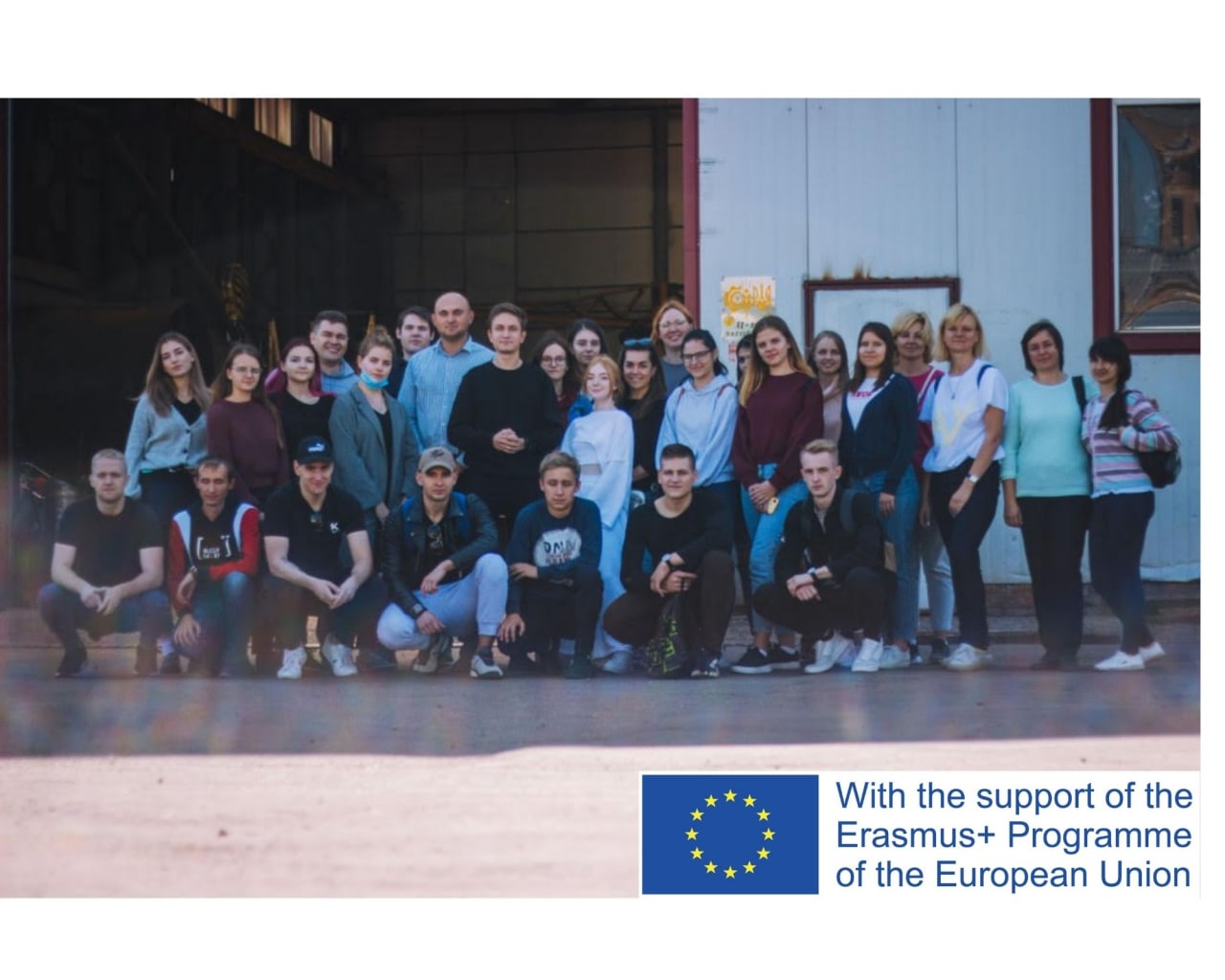
COMMUNICATION THAT INSPIRES
-involvement of the company's staff in the generation of ideas and implementation of green projects;
-introduction of alternative energy;
-implementation of waste-free production and recycling;
-optimization of the cost structure at the enterprise.
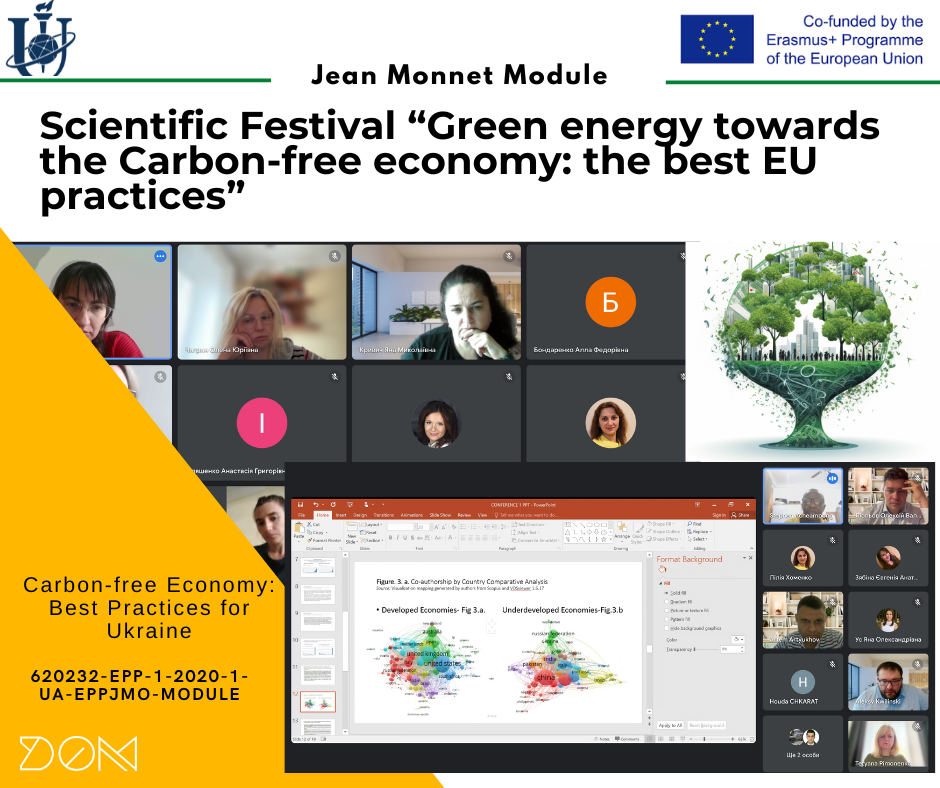
Online Scientific Festival "Green energy towards the Carbon-free economy: the best EU practices"
practices" unfolded its digital curtains from September 13 to September 19, 2021. This week-long virtual event successfully attracted 127 MA and Ph.D. students from prestigious institutions such as Ukraine Western Ukrainian National University, Ternopil, National TU "Dniprov Polytechnic", Dnipro, Sumy State University, Sumy.
The festival showcased a vibrant amalgamation of intellect, as 127 MA and Ph.D. students actively participated in exploring the basic tenets of the EU Carbon-Free Economy. Their enthusiasm underscored a collective commitment to gaining insight into the global drive toward sustainability.
Participating students hailed from esteemed institutions, reinforcing the festival's commitment to inclusivity and knowledge dissemination across diverse academic backgrounds. The representation from Western Ukrainian National University, Shupyk National Healthcare University of Ukraine, and Sumy State University added a rich tapestry to the discussions.
The event featured distinguished speakers, including Chygryn Olena, Serhiy Lyeonov, Tetyana Pimonenko, and Yana Us. These experts shared their wealth of knowledge, providing valuable insights into the EU Cohesion Policy and the core goals of the carbon-free movement.
The festival strategically centered its focus on elucidating the fundamental goals and principles steering the EU's carbon-free movements. Key discussions revolved around reducing carbon emissions, bolstering energy efficiency, and fostering innovation in sustainable technologies. Principles such as collaboration, inclusivity, and the promotion of long-term environmental sustainability emerged as crucial pillars in achieving a carbon-free future.
Throughout the week, participants engaged in a series of dynamic sessions, workshops, and panel discussions. Topics spanned a wide spectrum, encompassing policy frameworks, technological advancements, and the pivotal role of academia in driving sustainable practices. The interactive nature of these events facilitated a comprehensive exploration of the subject matter.
The virtual platform provided a conducive environment for networking and collaboration. Participants leveraged the opportunity to connect with peers and experts, fostering an environment of shared responsibility in addressing the challenges posed by climate change.
The Online Scientific Festival "The EU Cohesion Policy for Carbon-Free Economy" stands as a beacon of knowledge, bringing together academia and aspiring minds to collectively contribute to a sustainable future. As the world grapples with environmental imperatives, initiatives like these play a vital role in empowering the next generation of leaders dedicated to building a carbon-free world.
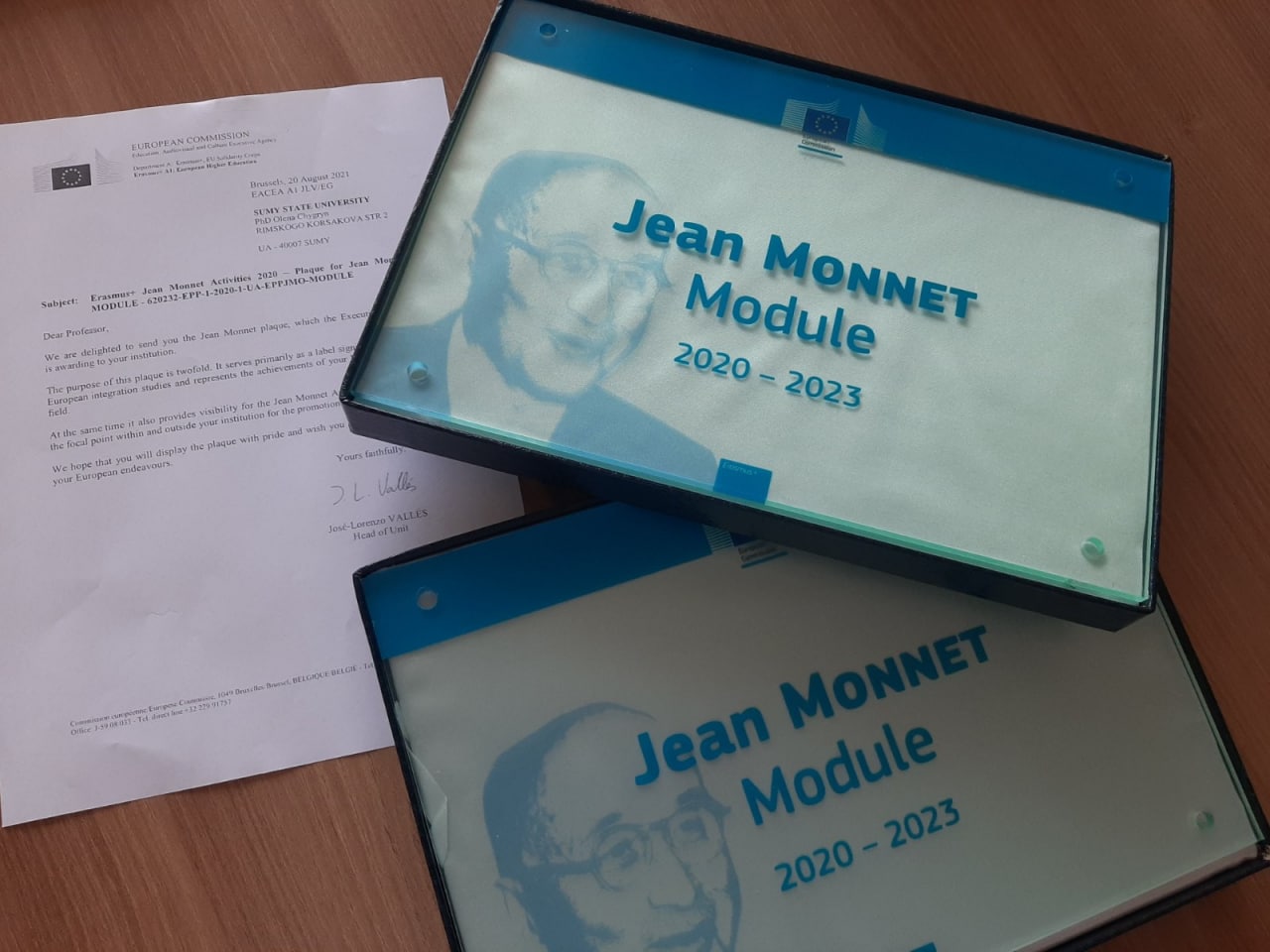
MARKETERS 'HONOR FROM THE ERASMUS + PROJECT
The Department of Marketing received from the European Commission honorary plaques, which note the high level of quality of the won projects: promotion of ideas and values of the European Union, ensuring transparency of project tasks, diverse representation of their results and achievements
Since 2020, the department has been implementing two modules within the Erasmus + Jean Monnet program ✅ "European policy for small and medium enterprises" (headed by T.V. Pimonenko) and ✅ "EU economy without carbon: best practices for Ukraine" (headed by Chygryn O.Yu.).
Lectures, seminars, trainings, field trips, excursions continue
The Department of Marketing is proud to accept the awards received
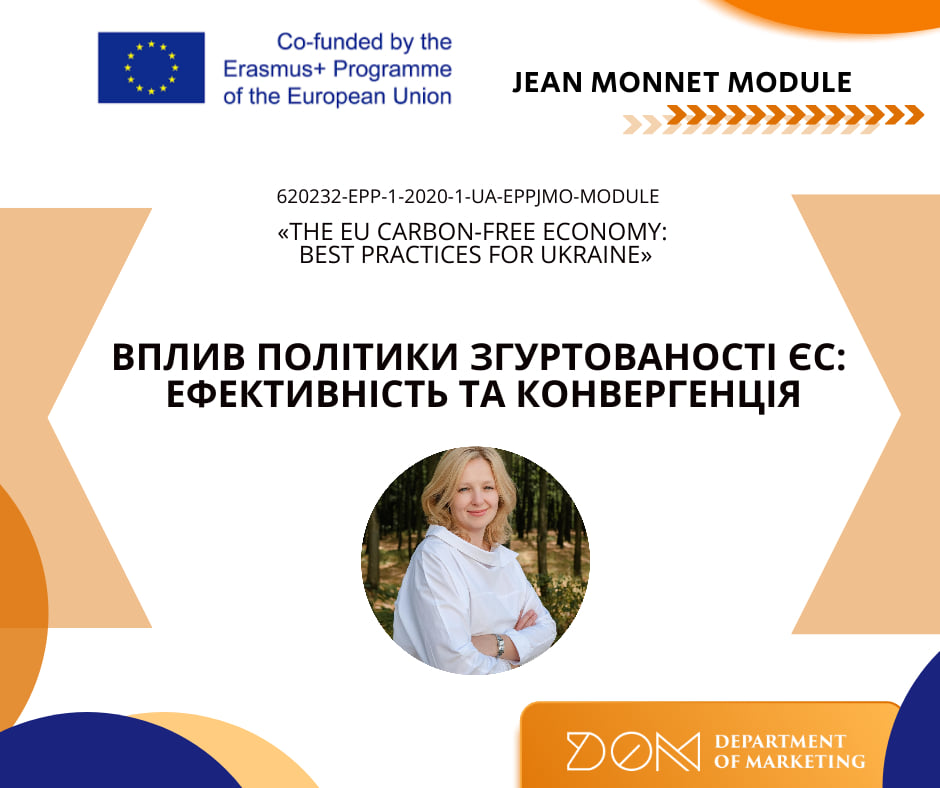
The Impact of EU Cohesion Policy: lectures

Course " Introduction into the Carbon-free Economy": developed syllabus
Tetyana Pimonenko and Oleksiy Lyulyov developed a syllabus on the course “Introduction into the Carbon-free Economy” (620232-EPP-1-2020-1-UA-EPPJMO-MODULE). This course teaches different specialities under the Jean Monnet Module «EU Carbon-free economy: best practices for Ukraine». After finishing, all participants will receive the relevant certificates.
Link to Syllabus
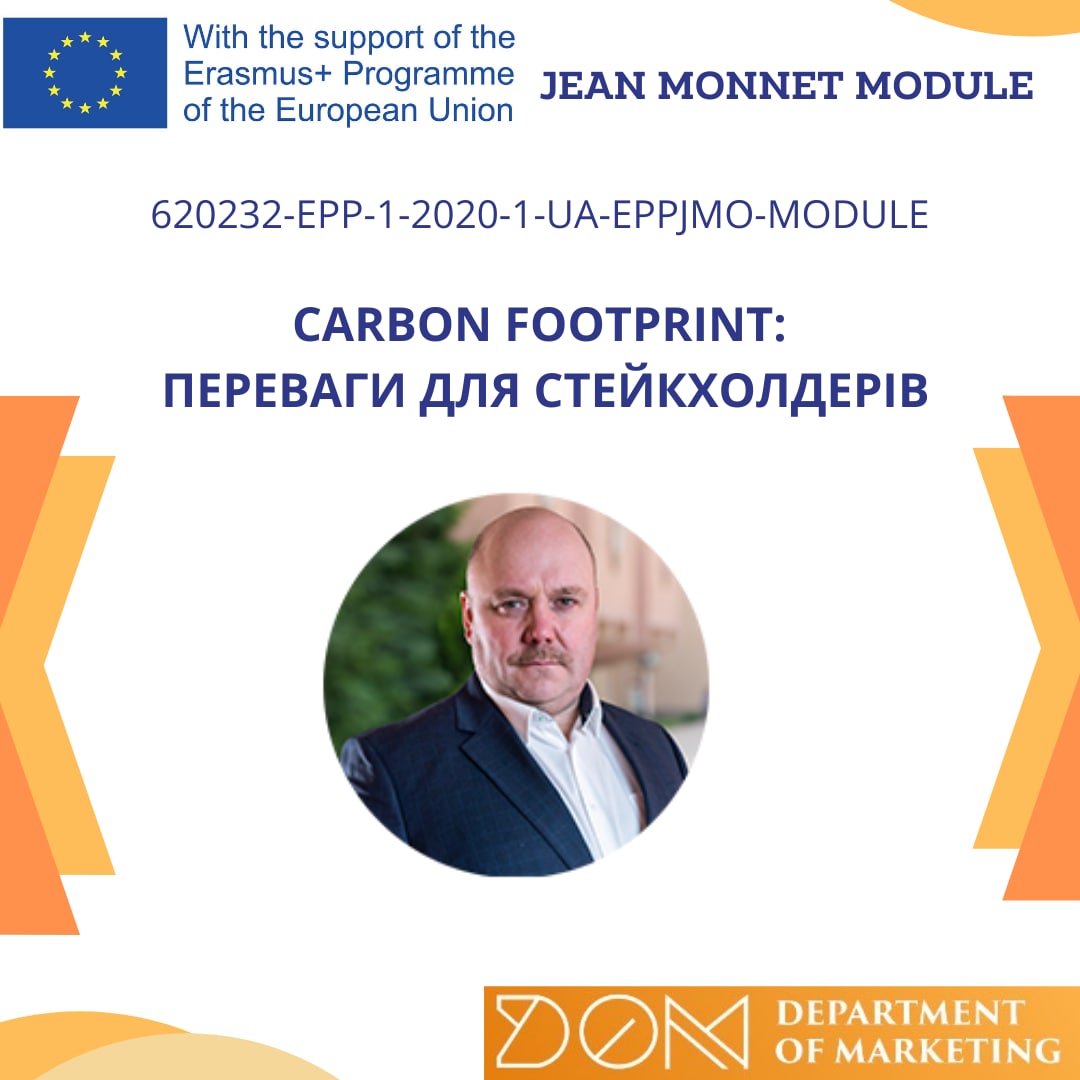
CARBON FOOTPRINT: BENEFITS FOR STAKEHOLDERS
Bachelors and Masters in Marketing continue to attend lectures and seminars within the framework of the Jean Monnet project "Carbon Neutral Economy: Best Practices for Ukraine" (620232-EPP-1-2020-1-UA-EPPJMO-MODULE)
On October 1, 2021, Serhiy Leonov held a webinar on "Carbon footprint: benefits for stakeholders", in which he spoke about the history of the term, levels of implementation, category of biopotential, prospects for the use of environmental footprint at the macro and micro levels.
The following questions turned out to be interesting for the listeners:
✔️ formation of an individual ecological footprint
✔️ Who are the "green" and "brown" consumers?
✔️ How does reduce the number of children, living without transport, giving up travel and vegetarianism affect the ecological footprint?
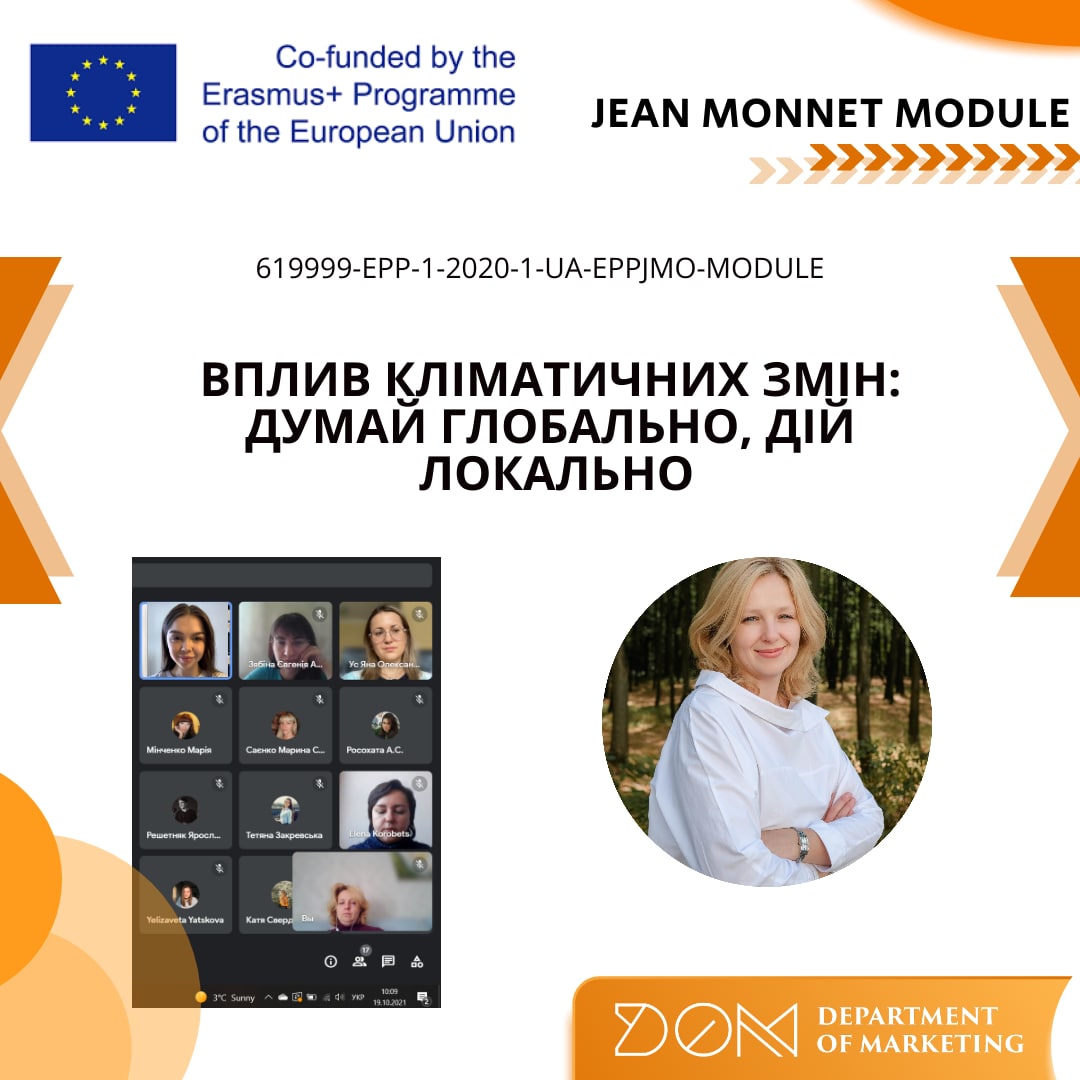
THE IMPACT OF CLIMATE CHANGE: THINK GLOBALLY, ACT LOCALLY
Associate Professor of Marketing Chygryn Olena conducted training in which she spoke about the peculiarities of climate change in Ukraine and the world. The participants of the training discussed the causes and consequences of climate change, discussed priority measures to combat climate change.
To divide the system of activities within the principle of "Think Globally, Act Locally" students were divided into five groups
Presentation
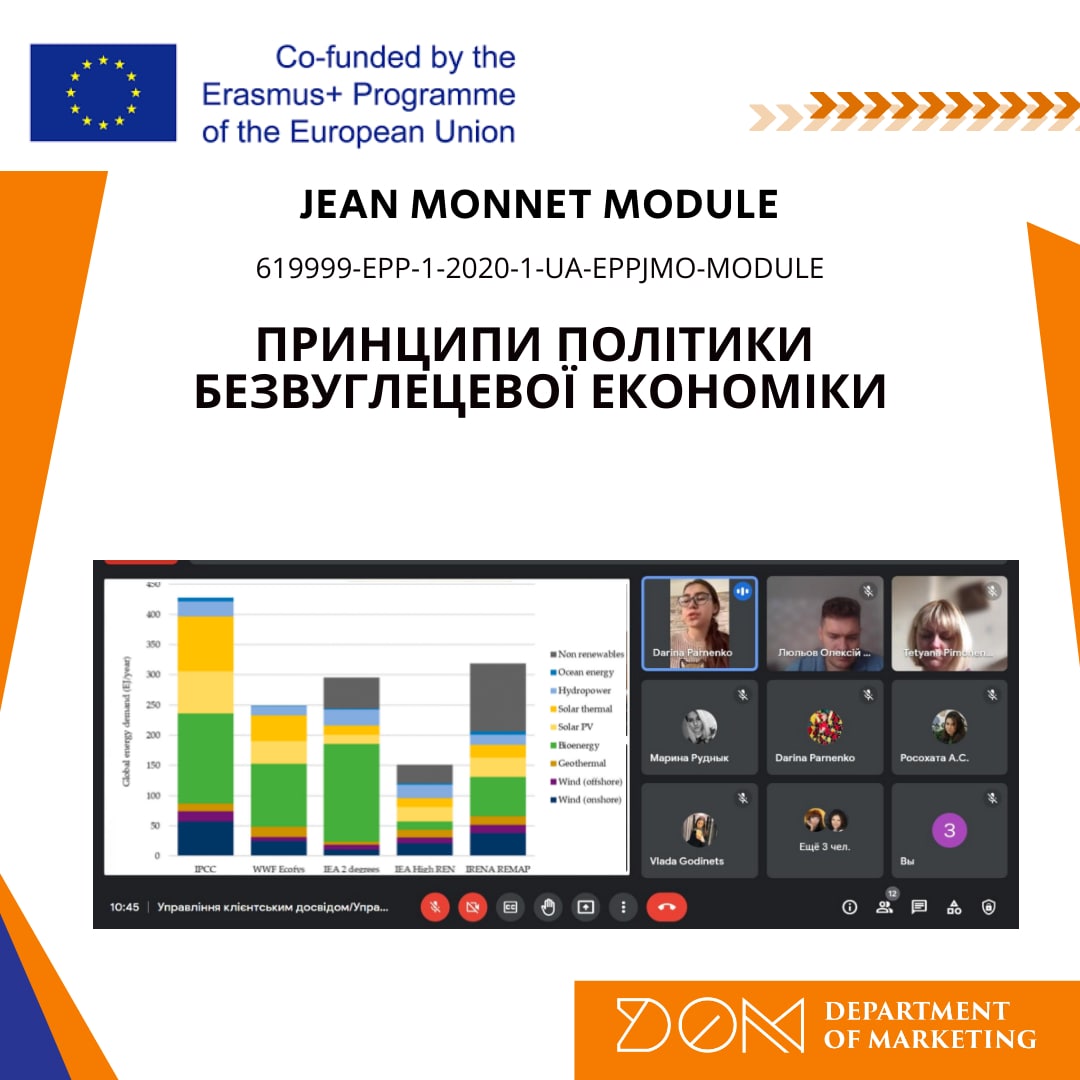
PRINCIPLES OF THE CARBON-FREE ECONOMY POLICY
On October 12, 2021, Tetyana Pimonenko held a webinar for 25 bachelor's and 12 master's students majoring in Marketing, dedicated to the basic principles of implementation of the European policy of a carbon-free economy.
The key issues of the webinar were: the principles of a carbon-free economy, the conditions for its formation, implementation mechanisms, financial support and green investment.
Students were analysed the features of the "green" transition of the domestic economy.
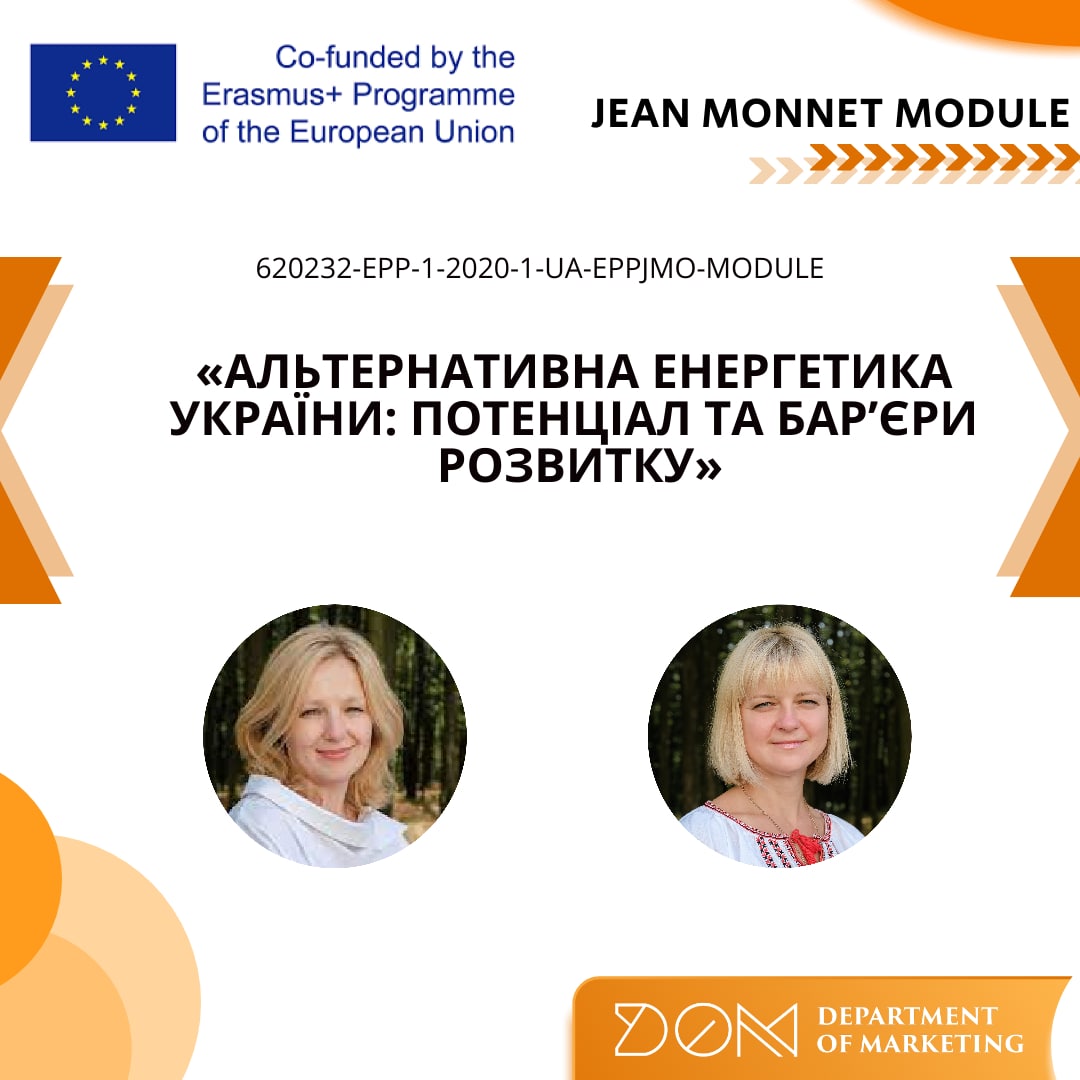
ALTERNATIVE ENERGY OF UKRAINE: POTENTIAL AND BARRIERS TO DEVELOPMENT
✔️ Analysis of energy production due to renewable energy and the pace of its development
✔️ The pace of development of alternative energy in the EU
✔️ Development of solar and wind energy in Ukraine
✔️ Biomass potential
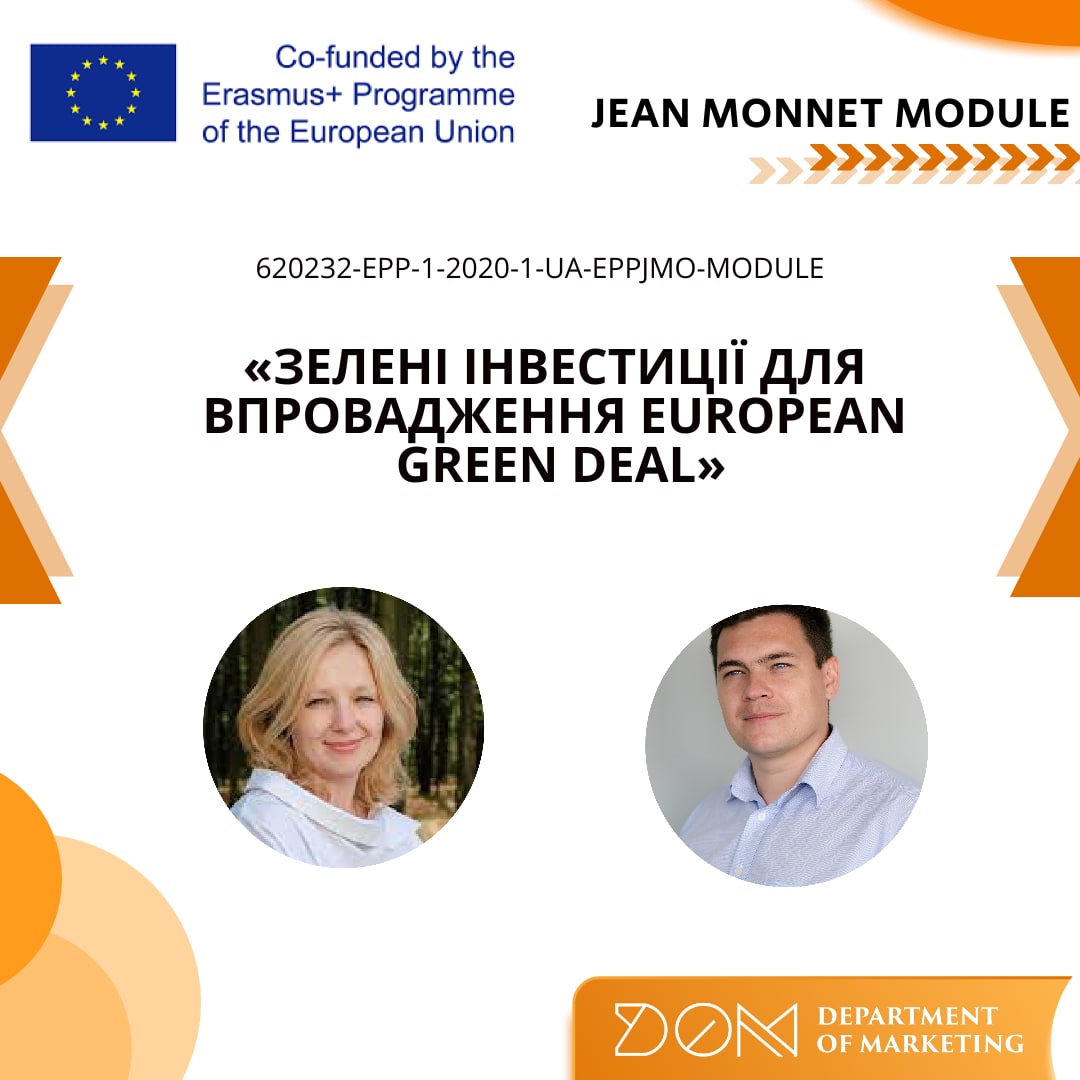
GREEN INVESTMENTS FOR EUROPEAN GREEN DEAL IMPLEMENTATION
✔️ public consciousness and green investment
✔️ current state and main obstacles to the implementation of green investment policy in Ukraine
✔️ mechanisms and instruments of green investment policy in Ukraine

EU action plan on sustainable finance: key aspects
From 10 October to 27 December 2021, students from economic specialities attended the lectures within the Jean Monnet Module "Carbon-free economy: best practices for Ukraine" (620232-EPP-1-2020-1-UA-EPPJMO-MODULE). The main speakers of the lecture were Serhiy Leonov and Tetyana Pimonenko.
During the online lectures, students get knowledge about:
- critical aspects of the European Green Financing Plan;
- available online platforms with information on open financial opportunities for green initiatives;
- EU taxonomy on green finance;
- European standards for green bonds;
- the specifics of corporate climate disclosure.
These lectures were held as part of the course "The EU Green Fiscal policy for Carbon-free economy: the best practices for Ukraine". Upon completing this course, 45 students receive certificates according to the results.

Workshop "The Carbon-free economy from the EU view"
The academic year began with a series of workshops, "The Carbon-free economy from the EU view", where students were able to practical cases to analyse the basic principles and goals of a carbon-free economy the role and importance of EU countries in global climate action (from 10th of October to 20th of December 2021). 45 Students identified Ukraine's contribution to achieving carbon neutrality. In addition, during the training, students identified gaps in harmonising domestic regulations with the European one in the transition to a carbon-neutral economy. The key speakers - Tetyana Pimonenko, Olena Chygryn. The participation of students from different specialities provided a fruitful discussion and development of multidisciplinary solutions to the problems posed during the workshop.
The training was conducted within the framework of the Jean Monnet Module "Carbon Neutral Economy: Best Practices for Ukraine" (620232-EPP-1-2020-1-UA-EPPJMO-MODULE). All participants received certificates according to the results.
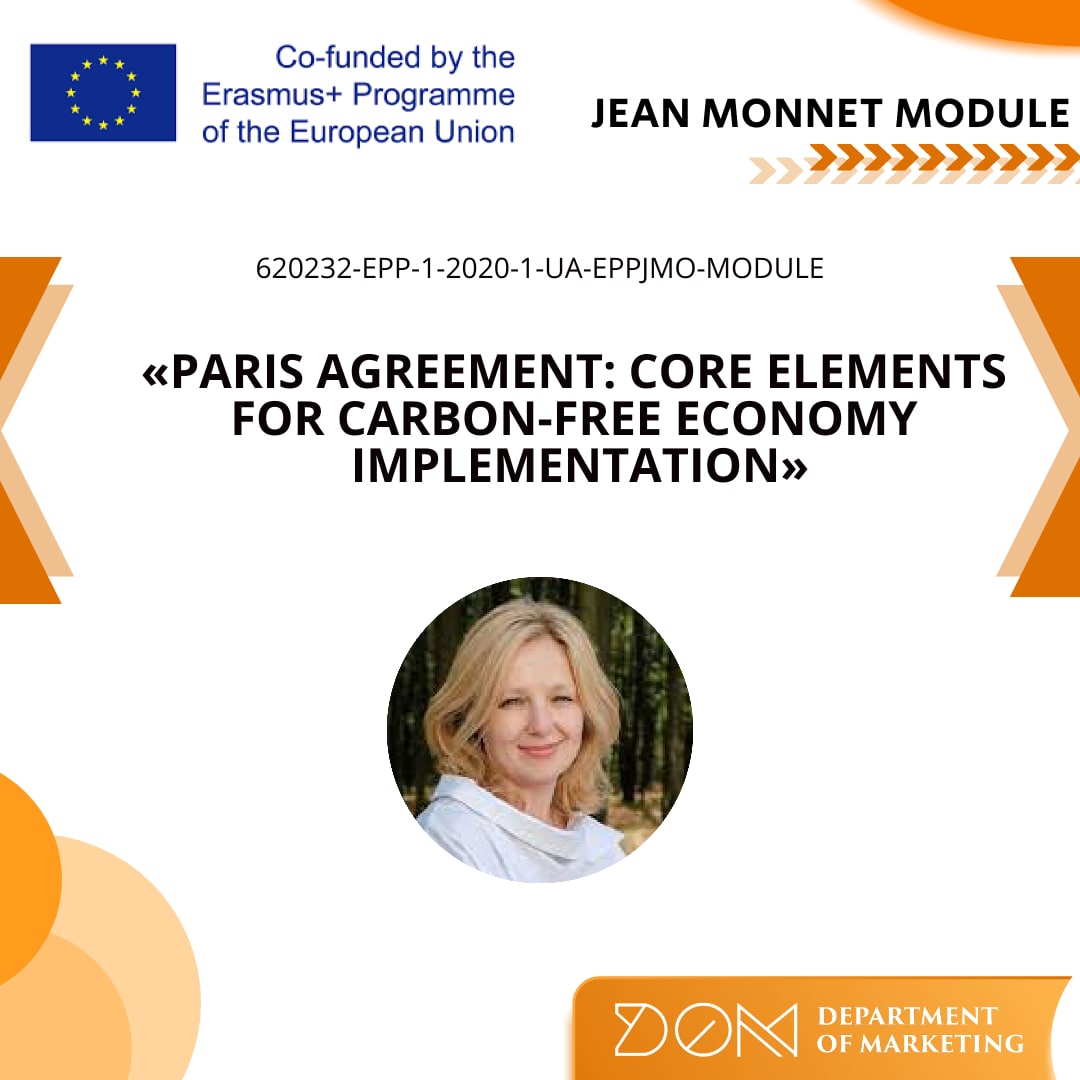
PARIS AGREEMENT: MAIN ELEMENTS OF CARBON-FREE ECONOMY IMPLEMENTATION
- key targets of the climate agreement (reduction of risks of climate change, increase of ability to adapt to negative influences, balancing of financial flows together with counteractions to climate changes);
- features of countries' participation and their national contribution;
- "global audit" as a monitoring of the implementation of the Paris Agreement.

European Investment Policy under the Green Deal Policy
From 1st November to 23d December 2021, Tetyana Pimonenko, co-holder of Jean Monnet Module "Carbon-free economy: best practices for Ukraine" (620232-EPP-1-2020-1-UA-EPPJMO-MODULE), gave a lecture on "European Investment Policy under Green Deal Policy». Tetyana focused lessons on the following aspects:
- the carbon footprint of investments and socially responsible investing;
- new trends and mechanisms of the European investment plan within the EU Green Deal Policy;
- EU trade policy and sustainable development.
These lectures were implemented within the course "The EU Green Fiscal policy for Carbon-free economy: the best practices for Ukraine". Upon completion of this course, 25 students receive certificates considering the results.

Training: platforms on sustainable finance
On 13 December 2021, invited speaker Oleksiy Lyulyov and co-executor Jean Monnet of the “Carbon-free Economy: Best Practices for Ukraine module” (620232-EPP-1-2020-1-UA-EPPJMO-MODULE) Tetyana Pimonenko conducted a training “Platforms on Sustainable Finance” for 25 students of marketing.
They told about the available opportunities and features of finding investment resources to implement green initiatives from the European Bank for Reconstruction and Development, the European Investment Bank, the OECD, the World Bank and more. In addition, the speakers highlighted the importance to adhere to the principles of transparency and publicity in obtaining green investment in projects.



